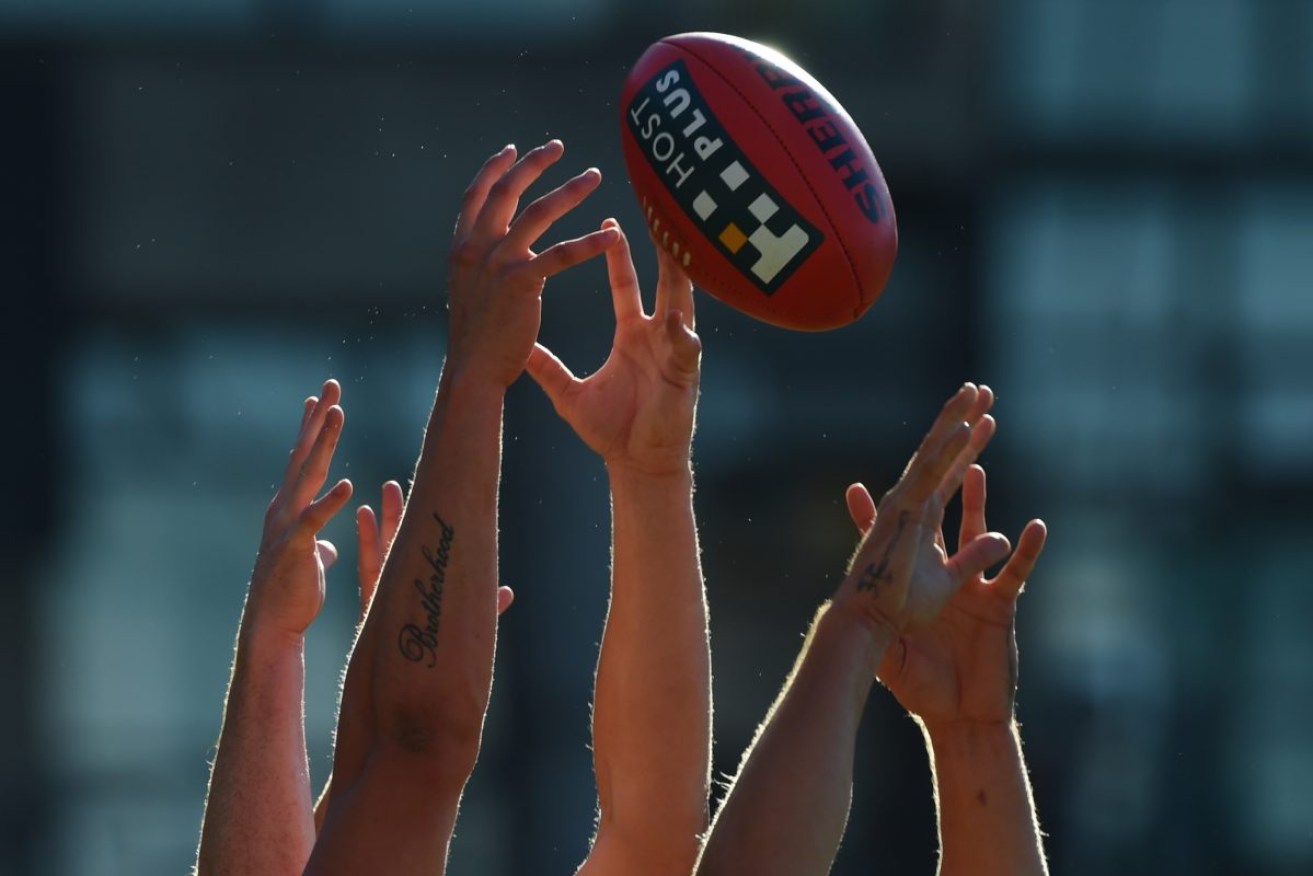Late in the winter of 1996, Crows chief executive Bill Sanders needed to appoint a senior coach for the third time in six years at the Adelaide Football Club.
This time there was no search party, no interview panel, no special sub-committee spending weeks on the appointment, as there had been with Graham Cornes and Robert Shaw.
“There was only one target – Malcolm Blight,” recalls Sanders. “I told (club chairman) Bob Hammond that I felt Malcolm was the right fit at the right time.”
Over dinner with Blight and his wife Patsy at the Hilton Hotel in Melbourne, with the MCG across the road, Sanders, Hammond and Adelaide’s football chief John Reid sealed the deal.
The rest is history: back-to-back flags in 1997 and 1998. The “Messiah” – as Blight was called even before he arrived at West Lakes – fulfilled all Sanders had expected.
There was only one target – Malcolm Blight
Four years after that memorable dinner in Melbourne, Blight was courted by the St Kilda Football Club with the main plate on the table being a contract worth $1 million a season. This time there was “football indigestion”, with St Kilda sacking Blight after 15 matches.
“St Kilda did not know Malcolm Blight,” Sanders said. “We did. I had history with Malcolm at the Woodville Football Club (in the SANFL). So did John Reid. We knew how he operated, and how we needed to operate around him to get the best results.”
The most-discussed point in Adelaide’s courting of Blight was his demand to shake up the player list, with the famous sackings of then-captain Tony McGuiness, inaugural captain Chris McDermott and Magarey Medallists Andrew Jarman and Greg Anderson.
“Malcolm said, ‘I need your backing’, and he had it,” Sanders recalled. “I doubt St Kilda knew all they needed to know about Malcolm Blight.”
Appointing AFL senior coaches remains the most mysterious part of the game. In some cases, AFL clubs will be more diligent in interviewing for a junior in the marketing department than with the search for a new senior coach, as was evident with North Melbourne in the failed appointment of Rhyce Shaw in 2019 after he won four of his first five games as interim coach.
Just as Sanders wanted Blight, North Melbourne legend Glenn Archer is said to have backed Shaw, while many seasoned AFL observers questioned the process that led to the seemingly rushed appointment.
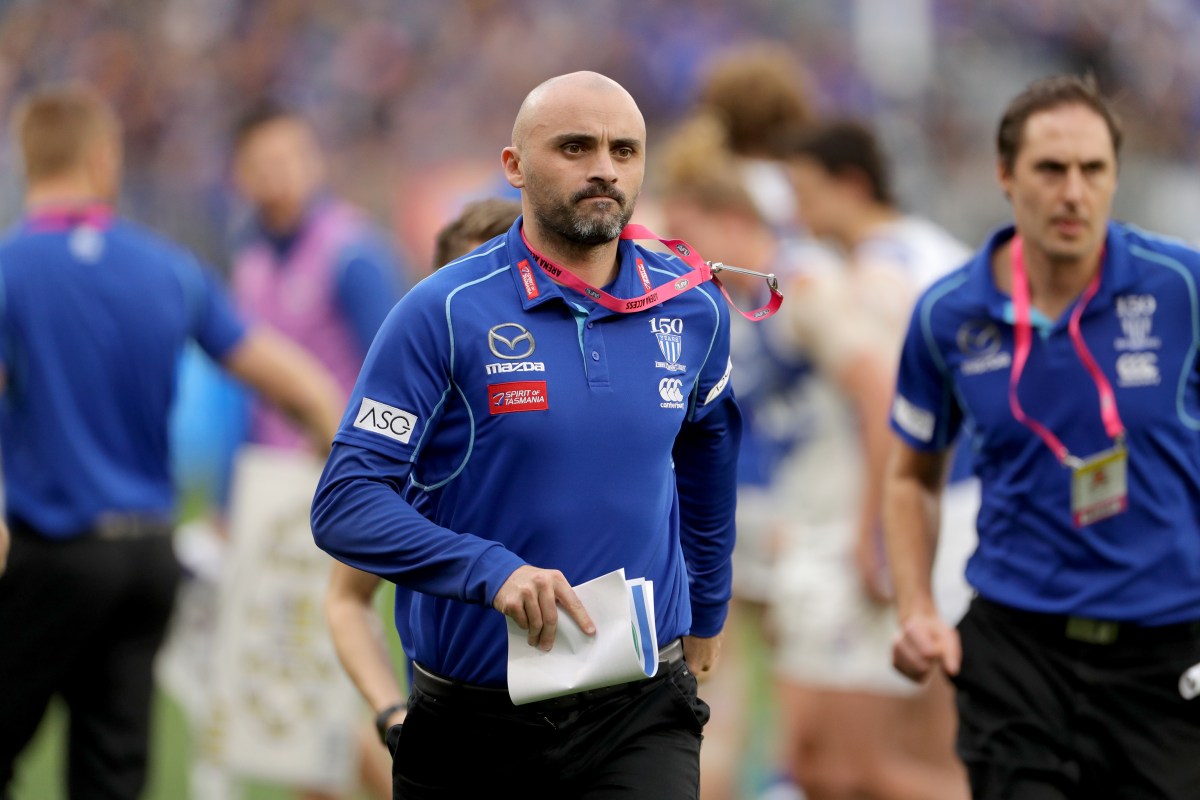
Rhyce Shaw. Photo: AAP/Richard Wainwright
Longstanding AFL commentator Damian Barrett, a North Melbourne devotee, recalls: “Archer and (club president) Ben Buckley ran a process to find Brad Scott’s replacement, making ‘Hail Mary’ calls to a few of their old mates in Adam Simpson (at West Coast), John Longmire (at Sydney) and Alastair Clarkson (at Hawthorn).
“All of those guys understandably said ‘no’ in a heartbeat. The so-called thorough process then unveiled interim coach Rhyce Shaw as the man they were after.”
After 17 games (with a 3-14 win-loss record in 2020), Shaw walked away from his three-year contract for “personal reasons”.
Port Adelaide virtually worked the same shallow process with Matthew Primus after he had a successful run as interim coach with five wins from seven matches – including a Showdown – in 2010 after replacing premiership coach Mark Williams.
As senior coach from 2011, the under-prepared and poorly-resourced Primus was doomed at a football club with financial pain and questions on its future. He was sacked after losing by 34 points to expansion club Greater Western Sydney in Sydney in round 19 of 2012, finishing with a 13-34 win-loss record.
Crows board member Mark Ricciuto notably dismissed Adelaide interim coach Scott Camporeale – who had six wins from nine games while holding together the Crows in 2015 after the death of Phil Walsh – saying the Primus example should stand as a warning against being “seduced” by caretaker coaches.
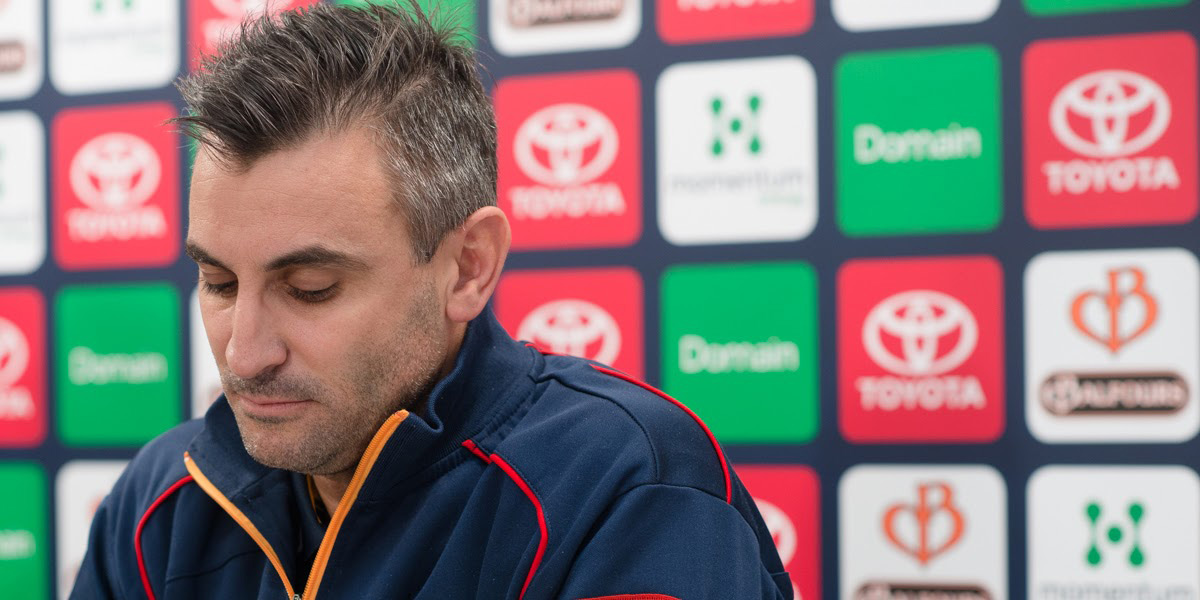
Crows interim coach Scott Camporeale. Photo: Nat Rogers, InDaily.
“You need to ask a lot of questions (of the prospective candidates),” says Sanders.
AFL premiership coach John Longmire, who knew Shaw as one of his assistant coaches for three years at Sydney, was surprised he was not asked by North Melbourne of Shaw’s readiness and suitablity to handle the stressful demands of an AFL senior coach. He had concerns from what he had seen of Shaw as an assistant coach.
The same story is told at Alberton, where then Port Adelaide Magpies president David Basheer instructed his then club chief executive Matthew Richardson to answer every question that might have been asked by Essendon while they considered Matthew Knights as Kevin Sheedy’s successor at the end of 2007.
Knights had coached the Magpies in the SANFL in 2004, and was gone by “mutual consent” at the end of the season.
“Matthew (Richardson) had the file at the end of his desk waiting for the call from Essendon,” recalls Basheer. “It never came.”
Knights was sacked at the end of the 2010 season with two years still on his contract, after amassing just 25 wins from 67 matches.
Only a month ago, in Adelaide, Sheedy – now a board member at Essendon – apologised to Basheer for his club not making the “background” call.
Today, there are two AFL clubs seeking new coaches: Greater Western Sydney (after the resignation of Leon Cameron), and North Melbourne (after the sacking of David Noble). There might be three other vacancies by season’s end – Port Adelaide (where Ken Hinkley is on contract for next season), West Coast (with Adam Simpson again on North Melbourne’s wishlist) and Essendon (if Alastair Clarkson is considered willing).
How do AFL club choose new coaches?
“It has to be a lengthy process,” says Sanders. “We did that with every coach we appointed after Malcolm Blight.”
Collingwood certainly did such before choosing South Australian and three-time Brisbane premiership player Craig McRae to replace Nathan Buckley.
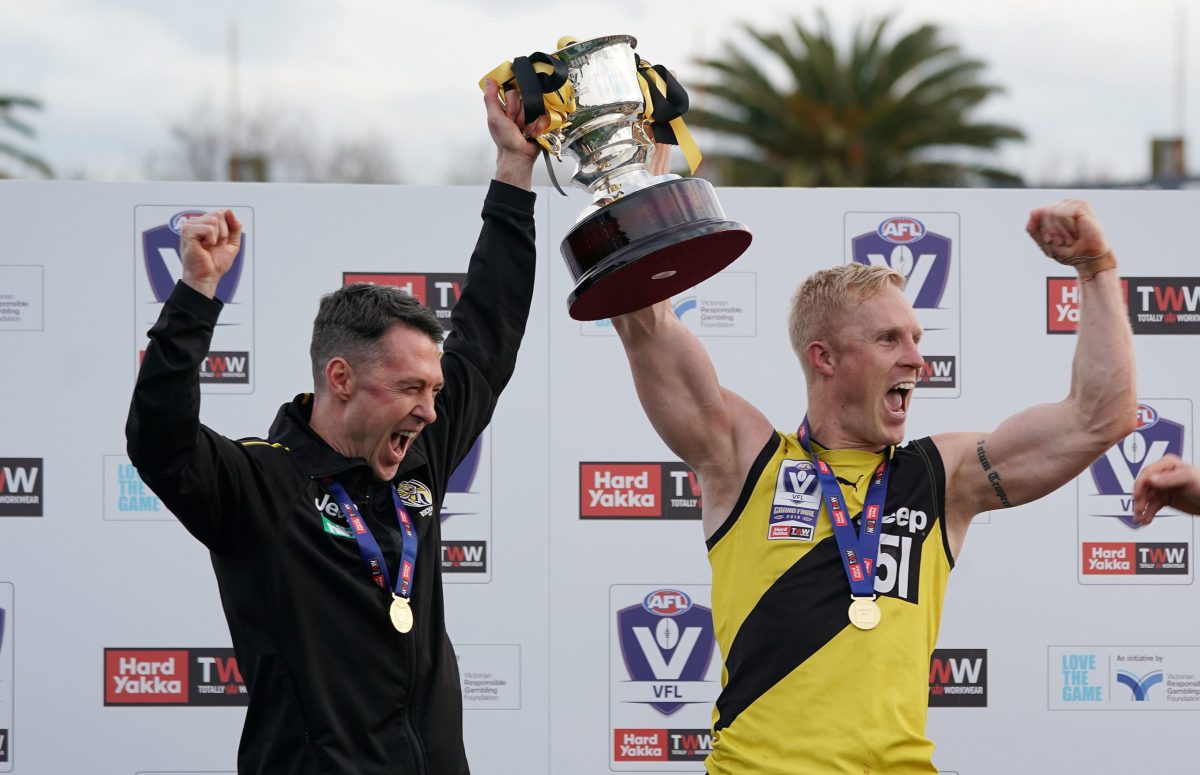
Former Brisbane Lions player and Richmond Tigers VFL coach Craig McRae (left) is now Collingwood coach. Photo: AAP/Scott Barbour
The former Glenelg SANFL player is today regarded as the “coach of the year” with a 12-5 win-loss record in his debut season.
Greater Western Sydney was first in the market this year with Cameron’s resignation in mid-May. Interim coach Mark McVeigh will be interviewed by the club next week. But, most strangely, there has been no announcement from the club on how it will undertake the task of appointing its third senior coach.
When InDaily asked the Giants if it had formed a sub-committee and who makes up any selection panel, the club responded: “We will be making no comment on the process until after the appointment (of the senior coach).”
So what is the “process” today? InDaily spoke to a “consultant” who has worked with several AFL clubs on selection panels and reviews of their coaches. His summary is: “If the process is right, you get the right coach.”
Background checks are most important. Don’t talk to the people listed on the applicants’ resumes as referees. They are going to tell you all the good things
“The process has to be based on due diligence, not on being seduced by whatever is the latest trend or fad in the AFL,” he said. “You have to get the coach the club wants … and that can be different to what others see as the coach the club needs.”
SUB-COMMITTEE: Who should make up the search party for a new AFL coach?
“If you call in a former coach,” says the consultant, “make sure it is someone who does not want the job himself. Leigh Matthews has now replaced David Parkin as that man. He is still involved in the game (in media and with the Brisbane board) and his record (four premierships) is exemplary. He also understands what is required – with player talent and football staff – to get the best out of the coach.
“Make sure the football department chief is part of the process. He needs to have a relationship with the new coach.”
Collingwood certainly did this last year, with new football boss Graham Wright leading the search for Buckley’s replacement in McRae. Adelaide did not have a permanent football chief when it appointed Matthew Nicks as Don Pyke’s successor at the end of 2019.
Football boss Brett Burton had been sacked as part of the fallout from the Crows’ collapse from 2017 grand finalist to also-ran, in particular the mishandling of the 2018 pre-season camp at the Gold Coast. Adam Kelly crossed from the SANFL two months after Nicks was appointed in October 2019.
Adelaide’s panel was chief executive Andrew Fagan, football director Mark Ricciuto, former player and assistant coach James Podsiadly and NBL championship-winning coach Phil Smyth.
“Four people is enough,” says the consultant. “The chief executive knows the business side of the club, but probably not the football. That’s why you want the football chief on the panel.
“There should be a former coach who knows exactly what is required in the job. A coach from another sport understands the philosophy of coaching – and knows what to ask and what to listen for in the answers.”
CANDIDATES: Who gets to the interview process?
“What are you looking for in the coach?” is the first question that needs to be answered before any interview list is made, says the consultant.
“Adelaide needed a coach who could bring the playing group, and probably the club, back together after all the issues that surfaced with the 2017 grand final loss,” the consultant told InDaily.
“Adelaide identified its problem. It searched for a coach who had the tools to deal with the problem. Matthew Nicks is noted for building relationships.
“Background checks are most important. Don’t talk to the people listed on the applicants’ resumes as referees. They are going to tell you all the good things. Make the calls to former players and former staff members – at least eight.”
Former AFL chief executive Wayne Jackson, who has been part of the Crows’ interview panels, repeatedly emphasises this “due diligence”.
“That is why it becomes a lengthy process – and a good process will ask a lot of questions of many people,” says Sanders.
The consultant warns against being “seduced by the latest predeliction in the AFL”. He also questions if AFL clubs look deep enough into the coaching ranks when putting together their preliminary interview lists.
“Chris Fagan came from an administrative role at Hawthorn to be the right coach for Brisbane,” said the consultant.
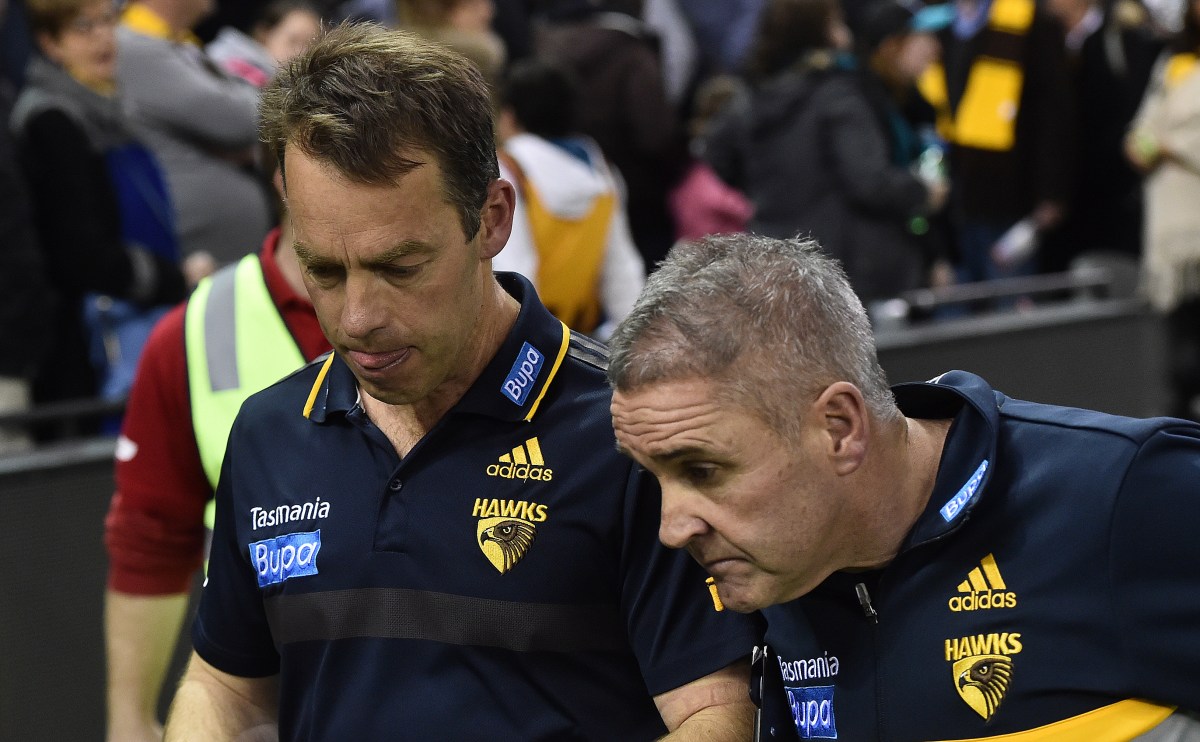
Chris Fagan (right, with Hawthorn mentor Alastair Clarkson) is now Brisbane coach. Photo: Julian Smith / AAP
“But that did not mean David Noble could do the same for North Melbourne.
“Don’t get caught up in the latest trends. And find out which assistant coaches – even those with low profiles or minor playing records – are doing great work at clubs.
“Choosing a coach who has worked his own team still should be the way. Leaving the AFL system to coach a team in the SANFL or VFL should not be seen as a step backwards in a coaching resume.”
PSYCHE TESTING: Former St Kilda and Fremantle coach Ross Lyon notably baulked at the thought of going through a process – in particular psyche testing – when he was linked to the vacant coaching role at Carlton that was ultimately filled by former Brisbane senior and Port Adelaide assistant coach Michael Voss.
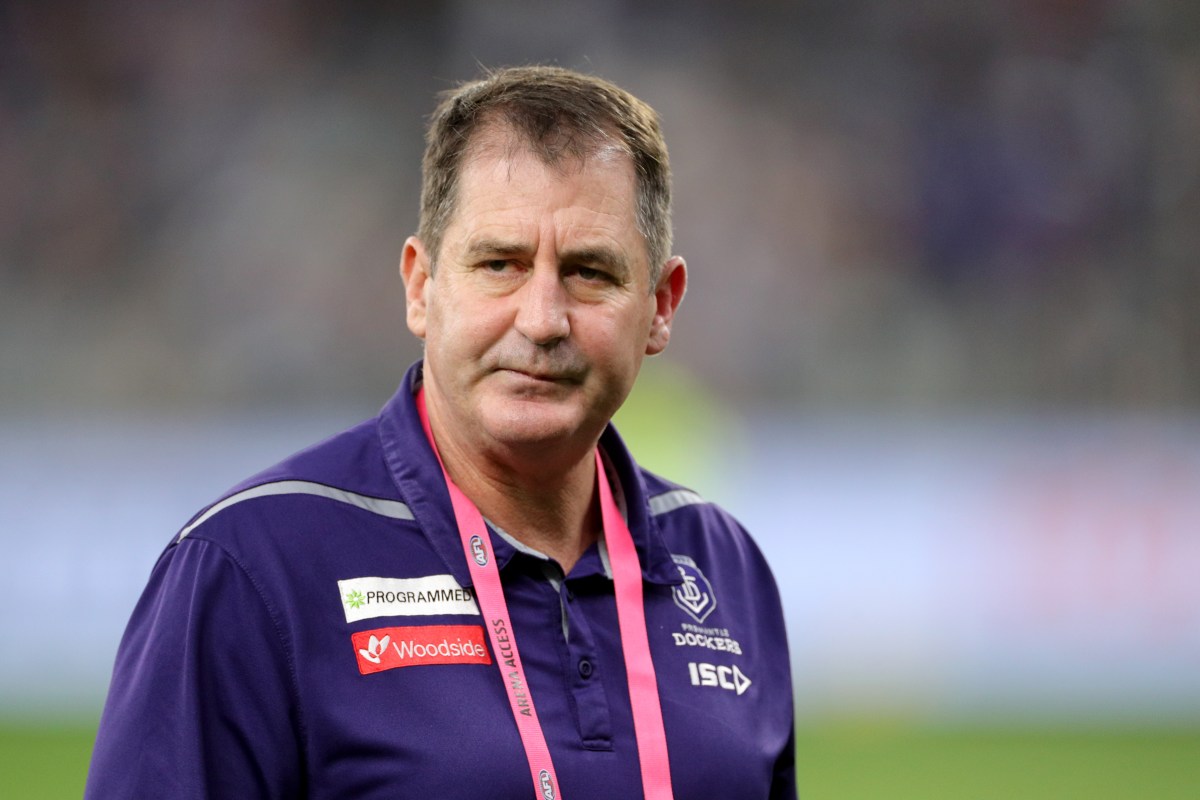
Former Fremantle coach Ross Lyon. Photo: AAP/Richard Wainwright
“At St Kilda, I went through a massive process. It was panel interviews, question and answer, a psyche evaulation, executive testing. I was headhunted to Fremantle,” said Lyon who describes his 13 seasons as an AFL senior coach as “13 years of auditions”.
What does the psyche testing tell an interview panel?
“You need to know how a coach will operate under pressure, and that is not always possible in an interview,” the consultant said.
“The psyche test is designed to see how a prospective coach will cope when there are fans baying for your blood. That is when a coach is ‘exposed’ – that is when you see the real deal.”
BEHIND CLOSED DOORS: So what happens when the short-list of candidates is evaluated by the selection panel?
“If it is a good process, you will get robust debate,” says the consultant. “And for that to work every member of the panel needs to be transparent and honest. Everyone takes an agenda into any debate. You need to clear all agendas from this process.”
THE BIG QUESTION: After the best coach emerges, the consultant recommends the panel asks: “Does our club suit this coach?”
“Does your club have what is needed to be successful with the new coach?” asks the consultant. “Ask Leigh Matthews what was the difference between winning one AFL premiership at Collingwood and three at Brisbane? His answer is, talent.
“Whoever is appointed as senior coach needs to work in an environment that presents that talent. That requires a strong recruiting team and strong development programs. Neil Craig would say at Adelaide, ‘We shouldn’t have to teach them skills. If they are deficient in skills we shouldn’t have recruited them in the first place’.”
The days of courting a prospective coach – even a master such as Malcolm Blight – over dinner are clearly gone.
Or will history repeat with four-time premiership coach Alastair Clarkson, who easily could become the exception to the new rule on appointing AFL senior coaches?
